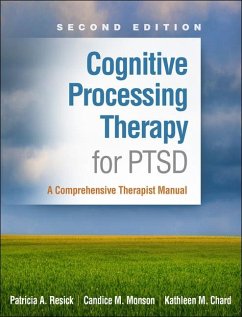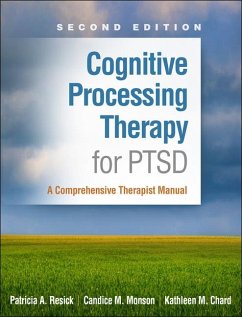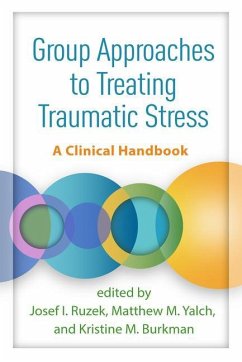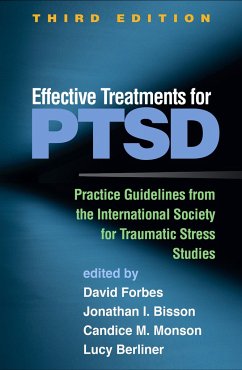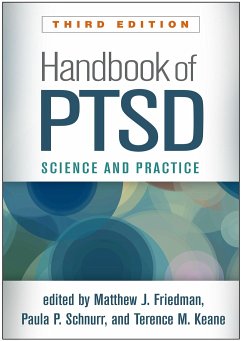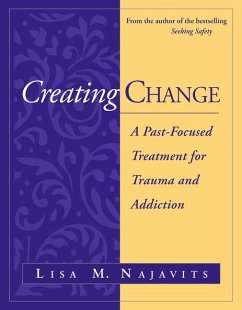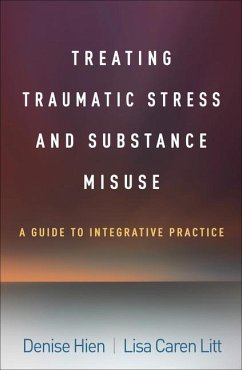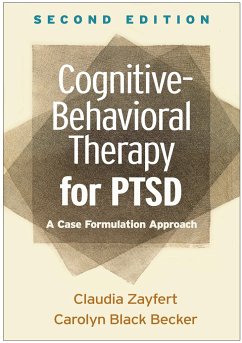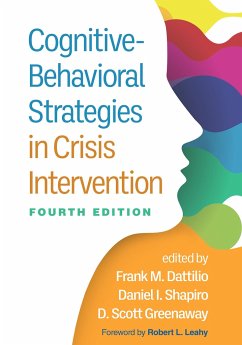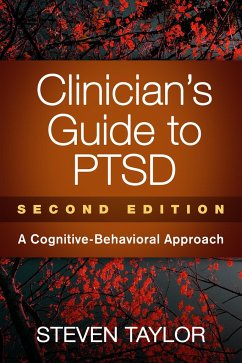Nicht lieferbar
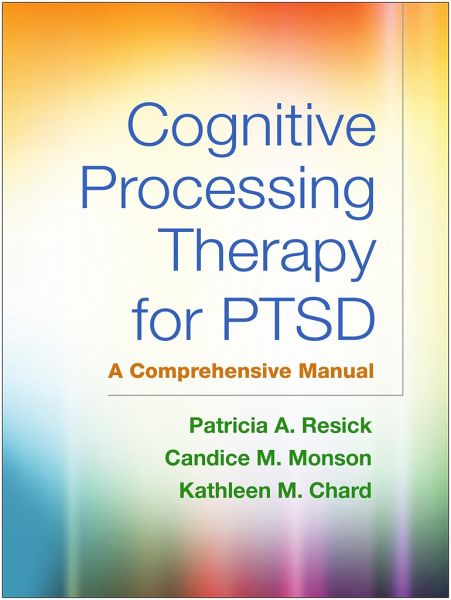
Patricia A. Resick (United States Duke University Medical Center)Candice M. Monson (Canada Ryerson University)Kathleen M. Chard (University of CincinnatiCincinnati Veterans Ad
Broschiertes Buch
Cognitive Processing Therapy for PTSD
A Comprehensive Manual




The culmination of more than 25 years of clinical work and research, this is the authoritative presentation of cognitive processing therapy (CPT) for posttraumatic stress disorder (PTSD). Written by the treatment's developers, the book includes session-by-session guidelines for implementation, complete with extensive sample dialogues and 40 reproducible client handouts.
Patricia A. Resick, PhD, ABPP, is Professor of Psychiatry and Behavioral Sciences at Duke University. She began developing and testing cognitive processing therapy (CPT) in 1988 at the University of Missouri-St. Louis, where she founded the Center for Trauma Recovery and was an Endowed Professor, and subsequently has worked with Candice M. Monson and Kathleen M. Chard to refine and further test the approach. Dr. Resick has served as president of the International Society for Traumatic Stress Studies (ISTSS) and the Association for Behavioral and Cognitive Therapies (ABCT). She is a recipient of Lifetime Achievement awards from the ISTSS, the ABCT, and Division 56 (Trauma Psychology) of the American Psychological Association. Other honors include the Robert S. Laufer Memorial Award for Outstanding Scientific Achievement from the ISTSS, the Leadership Award from the Association of VA Psychologist Leaders, and the Outstanding Educator/Trainer Award from the ABCT. Candice M. Monson, PhD, is Professor of Psychology at Toronto Metropolitan University in Toronto, Ontario, Canada. A Fellow of the American and Canadian Psychological Associations and the Royal Society of Canada, she is a recipient of the Traumatic Stress Psychologist of the Year Award from the Canadian Psychological Association and the Distinguished Mentorship Award from the International Society for Traumatic Stress Studies. Dr. Monson is well known for her research on interpersonal factors in traumatization and the development, testing, and dissemination of treatments for posttraumatic stress disorder (PTSD), including cognitive processing therapy and cognitive-behavioral conjoint therapy for PTSD. Kathleen M. Chard, PhD, is Associate Chief of Staff for Research at the Cincinnati Veterans Affairs (VA) Medical Center and Professor of Psychiatry and Behavioral Neuroscience at the University of Cincinnati. As the VA Cognitive Processing Therapy (CPT) Implementation Director, Dr. Chard oversees the dissemination of CPT to VA clinicians across the United States. She is an associate editor of the Journal of Traumatic Stress and a board member of the International Society for Traumatic Stress Studies. Dr. Chard is a recipient of the Mark Wolcott Award for Excellence in Clinical Care Leadership from the VA and the Heroes of Military Medicine Award from the United Service Organization. Known for her research on dissemination and clinical implementation of evidence-based treatments for civilians and veterans, she is the creator of the CPT for Sexual Abuse manual.
Produktdetails
- Verlag: Guilford Publications
- Seitenzahl: 312
- Erscheinungstermin: 26. Dezember 2016
- Englisch
- Abmessung: 263mm x 200mm x 18mm
- Gewicht: 686g
- ISBN-13: 9781462528646
- ISBN-10: 1462528643
- Artikelnr.: 45191406
Herstellerkennzeichnung
Libri GmbH
Europaallee 1
36244 Bad Hersfeld
gpsr@libri.de
Für dieses Produkt wurde noch keine Bewertung abgegeben. Wir würden uns sehr freuen, wenn du die erste Bewertung schreibst!
Eine Bewertung schreiben
Eine Bewertung schreiben
Andere Kunden interessierten sich für




